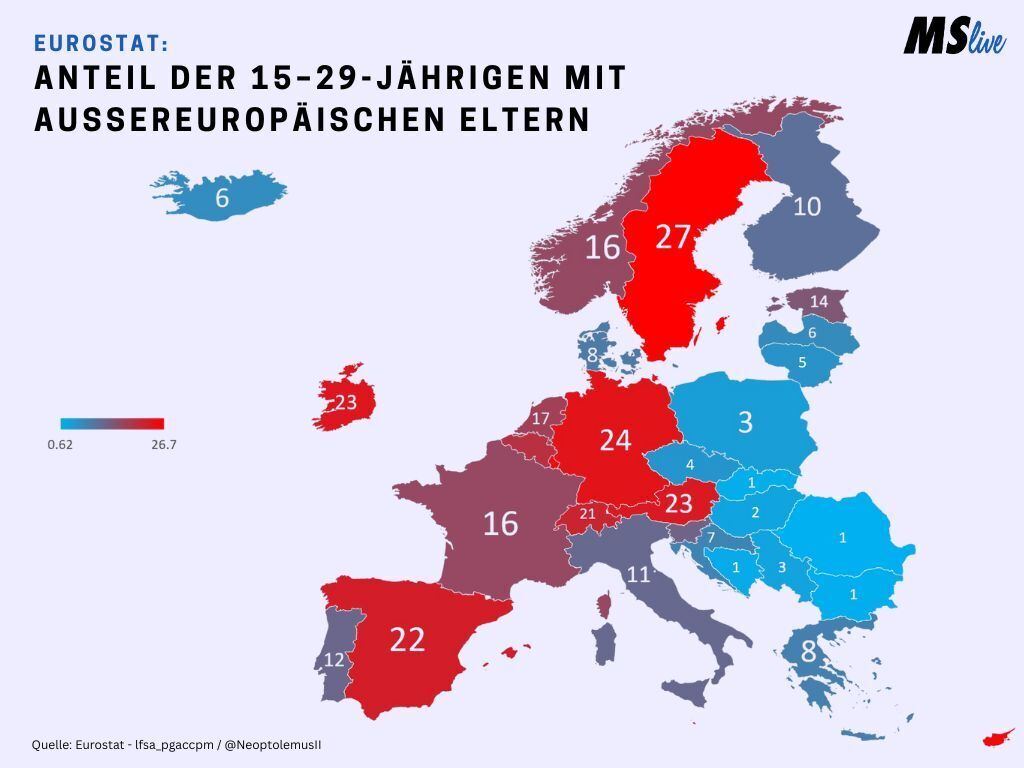One in Five Austrians Now Born Abroad
The share of people born outside Austria has continued to rise. According to Austria's Statistical Office, at the beginning of 2025 around 22.7 percent of the country’s population was born abroad — more than two million people.
The number of foreign-born residents in Austria has once again increased. According to a new publication by the Austrian Integration Fund (OIF), entitled Bundesländer, as of 1 January 2025, 22.7 percent of the total population — some 2.085 million people — were born abroad. The previous year, the figure stood at 22.3 percent, or 2.038 million. Germans make up the largest immigrant group.
Roughly 270,500 residents were born in Germany, followed by Bosnia-Herzegovina (179,800), Turkey (166,800) and Romania (148,600). Syria (94,800) and Afghanistan (48,200) — countries from which refugees have recently arrived — rank seventh and twelfth respectively. Ukraine, which remains at war with Russia, is in eighth place with 88,700.
In 2024, Germany also topped the list of countries of origin — the OIF recorded nearly 19,400 arrivals from the neighbouring country. Altogether, around 178,600 people migrated to Austria last year.
A total of 85,100 arrivals came from EU and EFTA countries as well as from the United Kingdom, 79,900 from third countries, while the remainder were Austrians returning home. Meanwhile, 128,500 people emigrated from Austria. Among Austrian citizens, departures outnumbered arrivals, leaving a negative balance of 5,700.
Rund 270.500 Personen in Österreich sind in Deutschland geboren. Darauf folgen die Herkunftsländer Bosnien und Herzegowina, Türkei und Rumänien. https://t.co/XP0aJJwqvy
— Die Presse (@DiePressecom) October 26, 2025
Nearly 39.8 percent of migrants live in Vienna, where, at the beginning of 2025, those born abroad made up 40.9 percent of the capital’s population. At the other end of the scale is Burgenland, Austria’s easternmost province, home to only 2 percent of all migrants.
During the 2023/24 school year, 26.4 percent of pupils spoke a first language other than German. By comparison, in the previous academic year (2022/23) the proportion was slightly higher, at 27.0 percent — but ten years earlier it was significantly lower, at 21.3 percent, Exxpress reported.
More Young People Have Parents from Outside Europe
According to Eurostat data, in many Western European countries — including Germany, Austria, Switzerland, Sweden and Spain — around 20 to 27 percent of people aged between 15 and 29 now have parents who come from outside Europe.

In Eastern Europe, most of the population remains native, but in the West, change is taking place at a rapid pace. Continuous immigration, coupled with the emigration of native Europeans, continues to shift the demographic balance, a specialist has warned.

